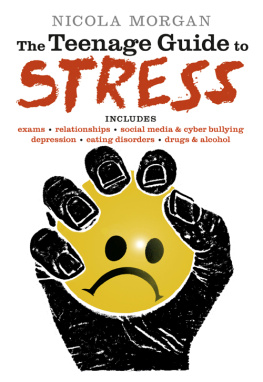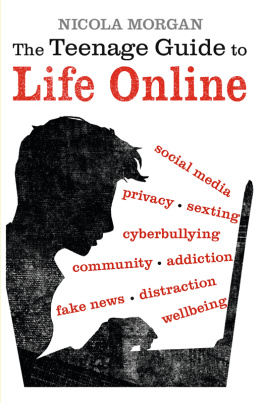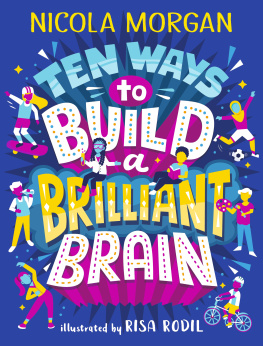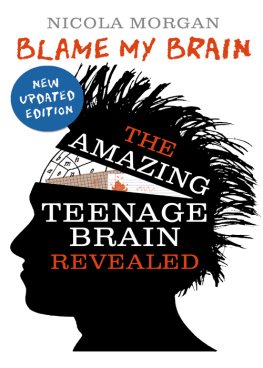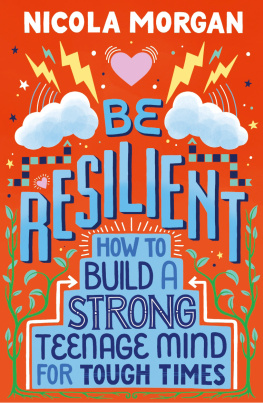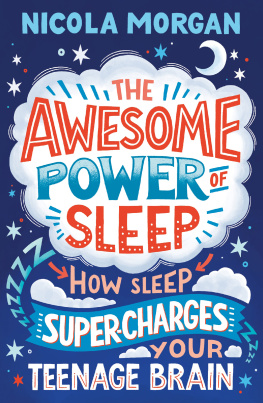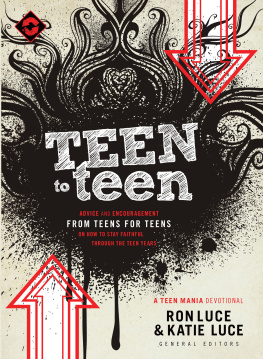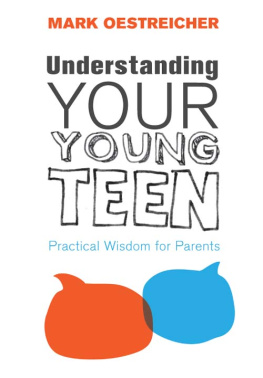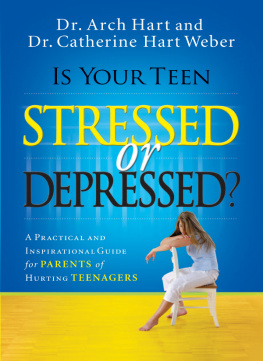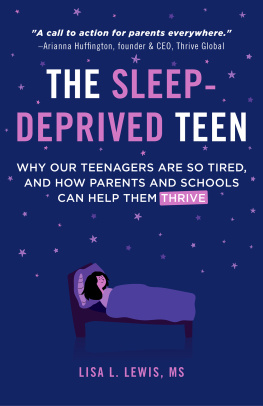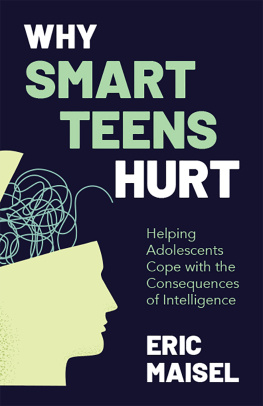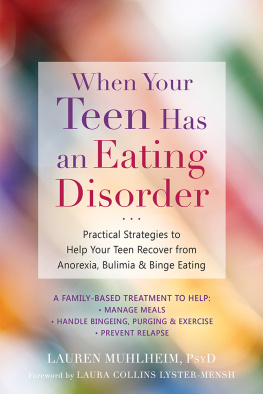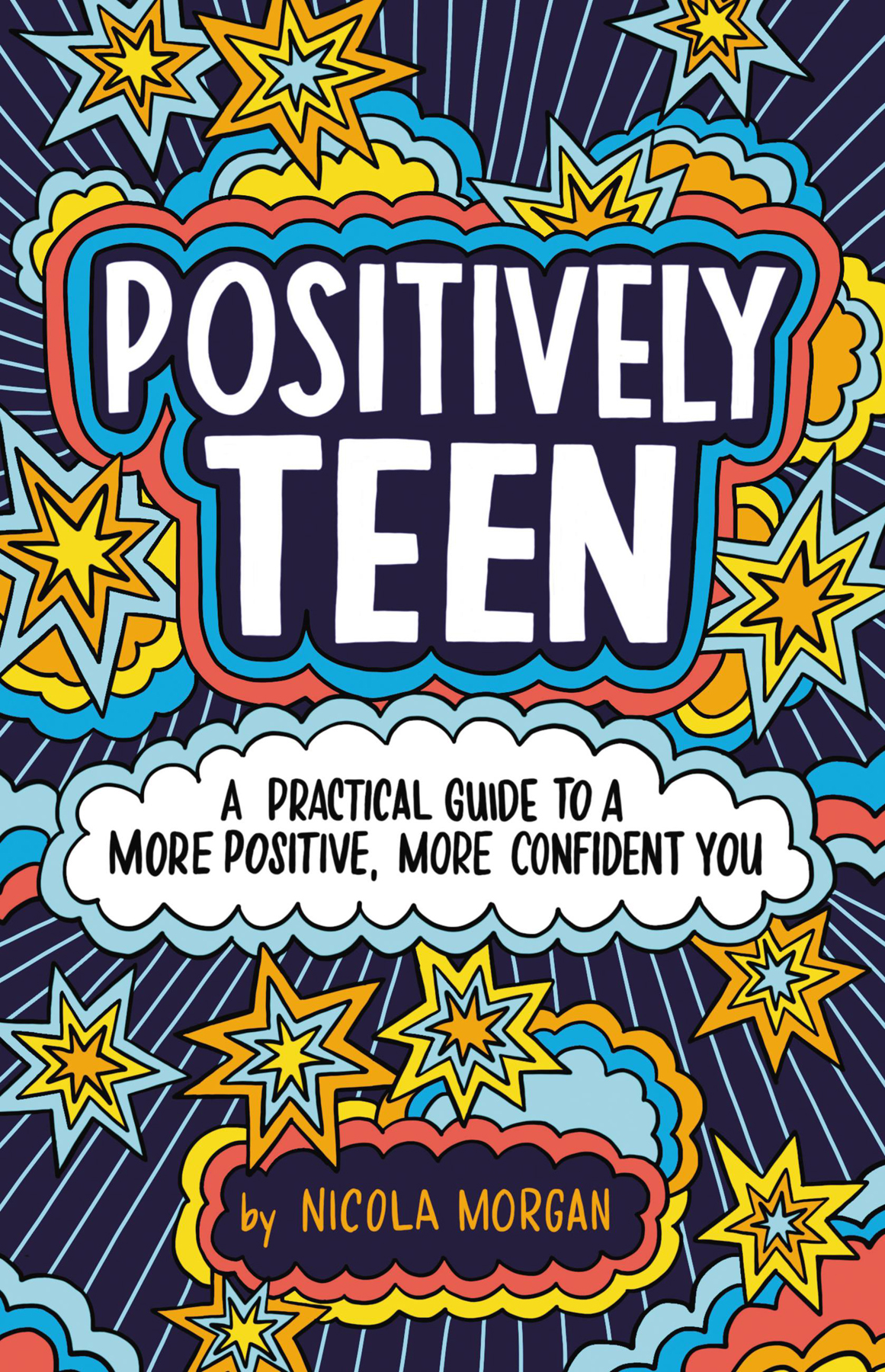I write a lot about adolescence, and visit tons of schools. Sometimes people ask me why. Why spend so many years of my life trying to help people a quarter of my age, who are younger than my own daughters? I could just say, Because I care, but that doesnt explain why I care. Why do I care more about teenagers than any number of other things I could spend my life working for? I think it has to do with my memories of being a child and teenager and how I wish Id known the stuff I talk about now. I could have avoided a lot of stress-related illness as a young adult and felt so much better about myself if Id understood half of what I know today.
You see, from my earliest years I was fascinated by how things work. I used to take gadgets apart and try to put them back together again. I wanted to know exactly how they functioned, so that I could make them work better. Now, as an adult who has studied the brain and behavior, I realize that humans and our brains are really only machines, just super-complicated and extraordinary ones. The more we know about how we work, the better we can make ourselves. We dont know everything yetmaybe we never willbut we know a lot more than we did when I was young, and that knowledge is what I want to share with you in this book.
Its for you, from me.
Are you excited about being a teenager? Or worried? What expectations do you have: positive or negative ones? Parents and other adults can be very anxious about adolescence, as though theyre expecting the worst. And the media often paints a negative picture, making it sound as though its going to be full of stress. This book tries to avoid that. It aims to give you all the inspiring information you need to take control of your well-being as you approach or experience this powerful and important stage of your life.
Sure, there may be some difficult days or weeksthats life, whatever age we are. Youll have exams; friendships might cause problems; your body is changing and you may be self-conscious about that; emotions can feel out of control, making you angry or sad; and you might want to do things that parents or teachers dont want you to do, which can create conflict. But theres so much to enjoy, too!
Its exciting to gain more control over your life and grow into the person you want to beand find out who that person is. Being able to go out more independentlywith friends or on your ownis fun and helps you learn important skills for managing your own life later on. Smartphones and social media give you huge opportunities to widen your knowledge and friendships, and modern technology also brings amazing chances to express yourself using video or blogs, with art, words, dance, and music. Your developing brain is allowing you to become an expert in whatever skills you spend time on, and youll find that there are things you can do better than the adults around you.
Yes, you might make mistakes or a few wrong decisions along the way, but thats how we learn. And adolescence is about learning: learning to become independent, to do things for yourself, to have your own ideas, your own values, your own personal goals and successes. You might fail sometimesin fact, you probably willbut failure is a step to success. If you try again, you have a better chance of succeeding, and your developing brain will help that happen.
Adults worry about failure and risks and sometimes try to prevent them by making things easier for you. But we dont learn things or become resilient by having people do everything for us: we learn by trying something for ourselves until we figure it out. If we succeed through our own efforts, we feel great about it. If we succeed because our parents did it all for us or told us what to do, its not our own achievement. And it wont feel as good.
Adolescence is really about taking control of your life and your well-being. We have to grow from being a child (when we have very little control, because we dont know enough to have any) to being an adult (when we are supposed to have a lot of control over our own lives). As a teenager, you are developing the skills to acquire this control and independence, and that cant happen suddenly. Positively Teen helps you learn those skills by giving you practical advice about things you can do that will have a positive impact on your well-being, mood, health, and outlook. Many teens feel that they cant control anything: I aim to teach you that you can control far more than you think. Its what I wish Id known when I was a teenager.
So, Positively Teen is based on understanding how your brain and body work, so you can be more in control. Not just through your teen years but through your whole life.
It will help you show adults that they can trust you, that you can learn to get things right, by aiming high and persevering. Your teen years can be full of success if you have the right attitude, tools, and knowledge. This book gives them to you.
Go for it! Be positively teen!
Well-being
Youll find the word well-being everywhere these days. Its a good word because its easy to see what it means because of the well bit. But what does it mean exactly?
The best way to think about this is to see whats different about well-being compared to happiness. You know what feeling happy is like. Its a positive feeling, the sort of emotion you might get if you were given a present you really wanted, or had done really well on a test or won a race or received some praise. Its a feeling you might get during a great vacation or when having fun with friends. So, we feel happy when something good happens. Sometimes when we have that feeling we dont quite know why. But we cant feel happy at the same time that were feeling angry or sad, obviously. So, if we were feeling happy and then something bad happened, we would stop feeling happy. Instantly.
Thats where well-being is different: if you have a good sense of well-being, and something sad or bad happens, you can still have good well-being. This is because well-being is not an emotionnot an immediate feeling. Well-being is a state of physical and mental health. You build it up over time, through lots of healthy behaviors (which this book will show you), and this gives you a reserve of mental and physical health. With a good state of well-being, you will still sometimes feel down or unwellbecause everyone has those timesbut you will also have a general feeling of Yes, Im OK; I feel pretty good a lot of the time; I can cope with what life throws at me today.


